
October 19, 2024
The CSWA teach-in comes after McConnell Cook Adan Campos, a recipient of DACA, was fired by Bon Appetit for his documentation status.
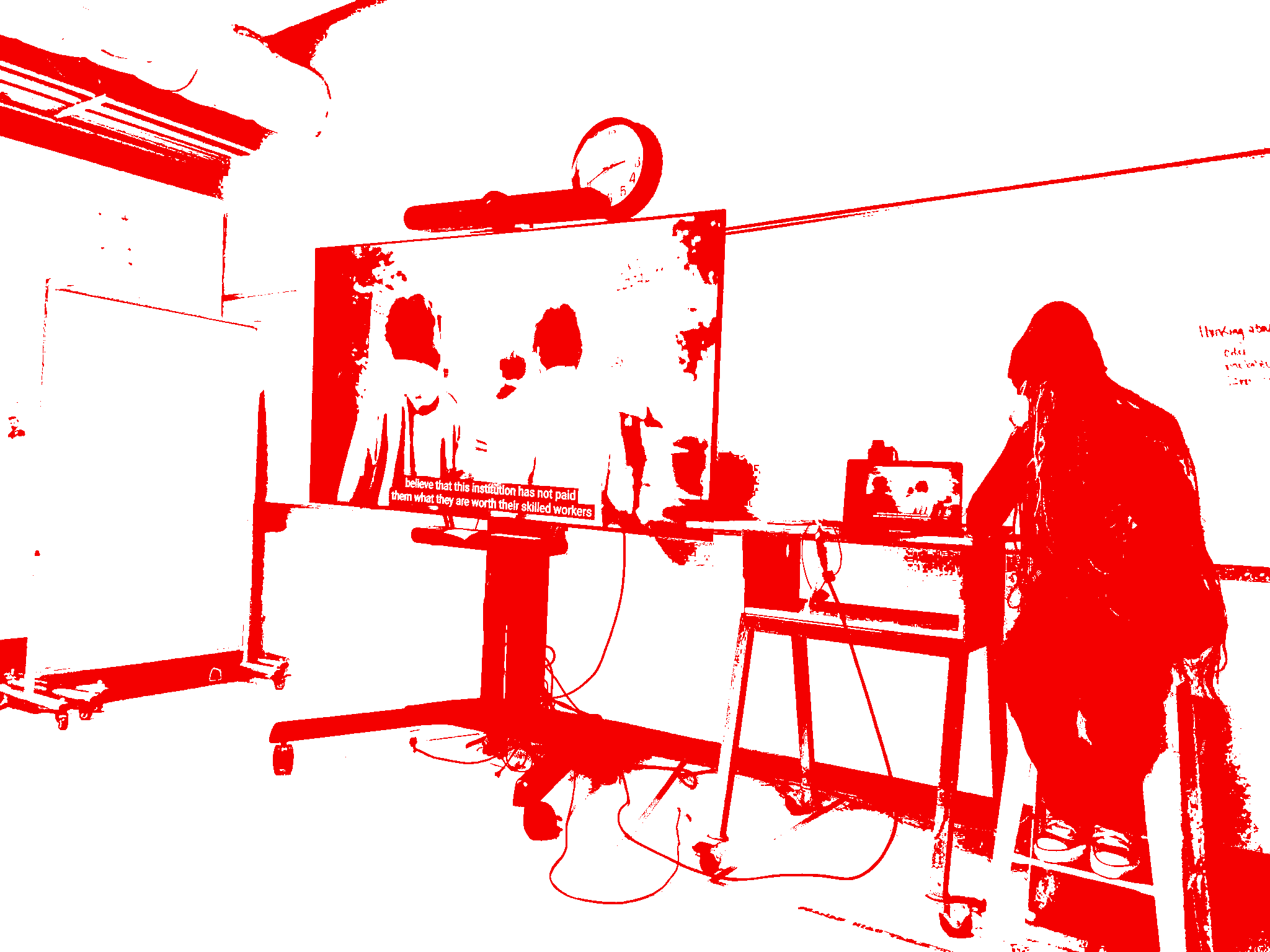
On Sept. 28, students attended a teach-in at the Hive focused around the history and context of the Deferred Action for Childhood Arrival (DACA). The teach-in, organized by the Claremont Student Worker Alliance, was in response to Pitzer College firing former McConnell cook Adan Campos because of his documentation status.
Campos, a recipient of DACA, was fired by management agency Bon Appetit this past February while his work authorization paperwork was being renewed. After his documents were renewed, he attempted to return to Pitzer and was denied reapplication.
In response, CSWA launched the Rehire Adan campaign. This came after Pitzer College ignored 70+ workers who delegated in August to demand that Adan be rehired as well as another delegation on Sept. 27, when 40+ students delegated to Pitzer’s Human Resources office.
The teach-in drew connections between labor campaigns in Claremont — mostly recently Rehire Adan, but referencing 2002, 2012 and 2022 campaigns — and a history of anti-immigrant policies and labor practices in America. .
Students in attendance discussed what DACA is, how it functions, and how it fits into a broader history of immigration policies, labor practices and worker’s rights in the U.S. and at the Claremont Colleges. The teach-in served to contextualize the Adan campaign as well as spread awareness of, and build the confidence to fight back against, anti-immigrant practices at the 5Cs.
The teach-in began by summarizing what DACA is and how it functions. DACA was established in 2012 by the Obama administration that offers temporary stay in the U.S. for undocumented people who arrived in the country as children.
A CSWA member, who requested to remain anonymous for safety concerns, outlined DACA’s requirements for eligibility. These include having a GED or having/pursuing a high school degree, arriving in the U.S. before the age of 16 and not having a felony or significant misdemeanor conviction.
However, the speaker made it clear that even if an applicant meets all of the above requirements, they are still not truly protected as the program is temporary, and every recipient must reapply for DACA every two years, which can be a months-long and grueling process. They also emphasized that DACA is in no way a path to legal citizenship.
As of 2021, DACA has been on hold, meaning that while current recipients can continue to renew their applications, no new applicants are being accepted.
The teach-in contextualized DACA and the Rehire Adan Campaign within a timeline of U.S. immigration policy and exclusion. The timeline began with the genocide of Native Americans (1492) and the transatlantic slave trade (1526-1867) and included the 2021 U.S. District Court for the Southern District of Texas ruling which resulted in a freeze on DACA applications.
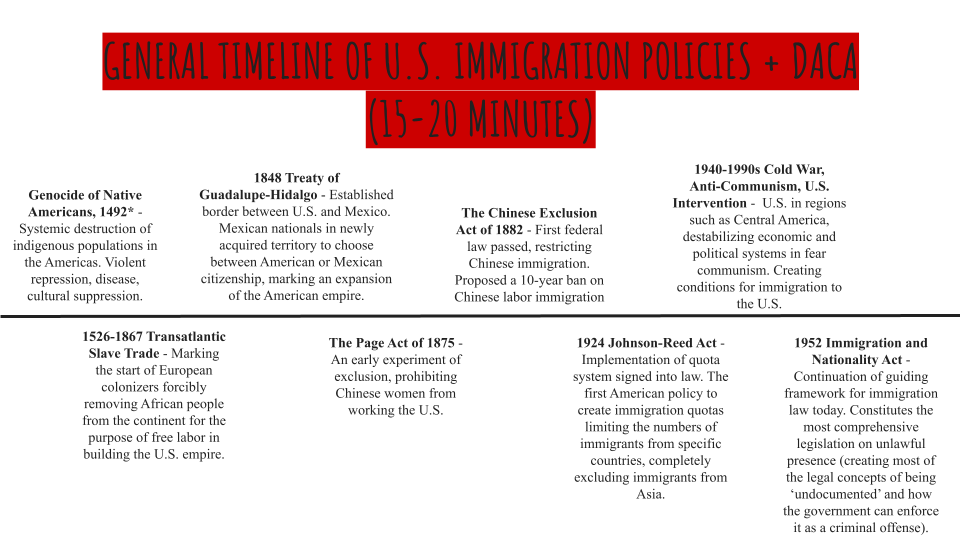
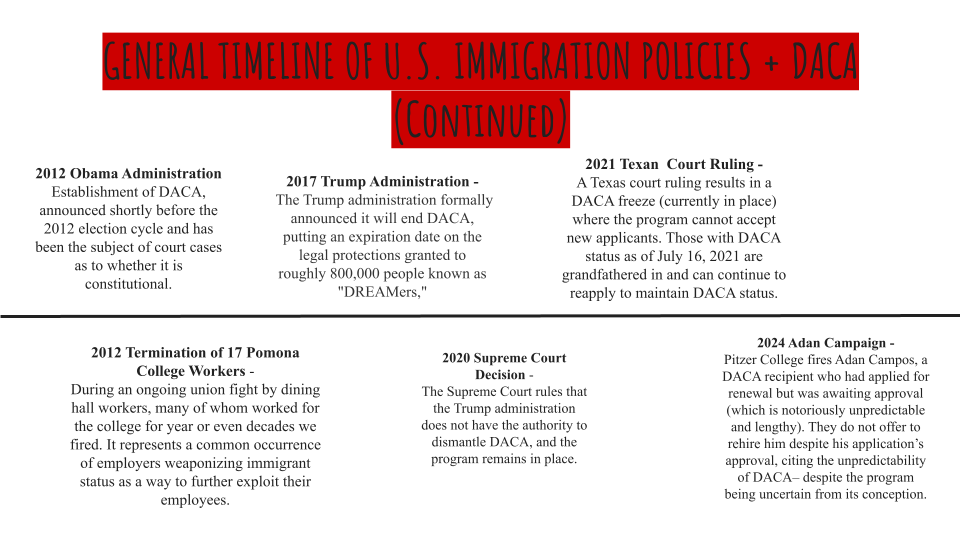
The timeline spanned centuries of anti-immigration policy in the United States to draw connections between American immigration policy, labor practices and institutionalized racism.
Referencing Arely M. Zimmerman’s “Contesting citizenship from below: Central Americans and the struggle for inclusion” (2015), the steering member asked, “how can we think about how people in these precarious positions are reclaiming their agency… and seeing themselves as citizens and as a part of this American society?”
The speaker also read a quote from Leisy J. Abrego’s “Relational Legal Consciousness of U.S. Citizenship: Privilege, Responsibility, Guilt, and Love in Latino Mixed-Status Families” (2019). They described the “legal violence” of immigration laws which “criminalize an ever wider range of immigrant behaviors [and] legitimizes and normalizes violence against immigrants.”
“These laws are seen as…objective and moral,” an audience member added, “but the system is set up to be difficult and to marginalize [immigrants].”
Using Cheryl Harris’ seminal Critical Race Theory article “Whiteness as Property” (1993), the speaker also described how American citizenship and immigration policy is inextricable from how whiteness maintains itself as legally protected property.
Both Harris and Abrego’s texts push against the notion that “law is something that is objective and not biased,” the speaker said. “These scholars are theorizing about how the very implementation of law in our society was to push the exclusion of the ‘other’ and to maintain white supremacy.”
The teach-in concluded with a viewing of “A New Precedent,” a student film made by Charlie O’Brien PZ ‘23 and Jacob Neville PZ ’23. The film followed the fight to reinstate and defend the unionization of Pomona and Pitzer custodial, grounds and dining staff. The film offered hope for other labor campaigns on campus and motivated attendees to join the Rehire Adan campaign.
The recent history of unionization at Pitzer includes a 2002 union fight which involved students chaining themselves to Broad Hall. Although workers won the union, it got voted out two years later. When the film was made, the workers had once again unionized, but both Pomona and Pitzer had been engaging in various union-busting tactics.
During an interview in “A New Precedent,” Delmy, a custodian at Pitzer, helped contextualize the importance of student support. “I think we’re really strong as a group and we’re a strong community,” they said. “I felt so much support from the students, just being able to be there standing with everybody there that day gave me a lot of strength to be able to look at my supervisor and tell them, ‘this is not right.’”
Tony, a Pitzer groundskeeper, said, “this school has had every opportunity to take care of their workers and they have not. So that’s why we need to take the reins and really make that change.” Later in the film, he also emphasized the importance of “building awareness…building connections… [and] building a bigger family” to recognize the needs of workers at Pitzer College.
The film ended with the image of a circle of workers holding hands and singing a celebratory song after winning unionization.
To end the teach-in, attendees discussed what they can do to use the power they have as students to demand “a new precedent.” The steering member encouraged everyone to continue educating themselves and to keep showing up in support of Adan.
“[the film] just shows what we can do with our collective solidarity,” they said. “How we can press these colleges…and just what organizing looks like.”

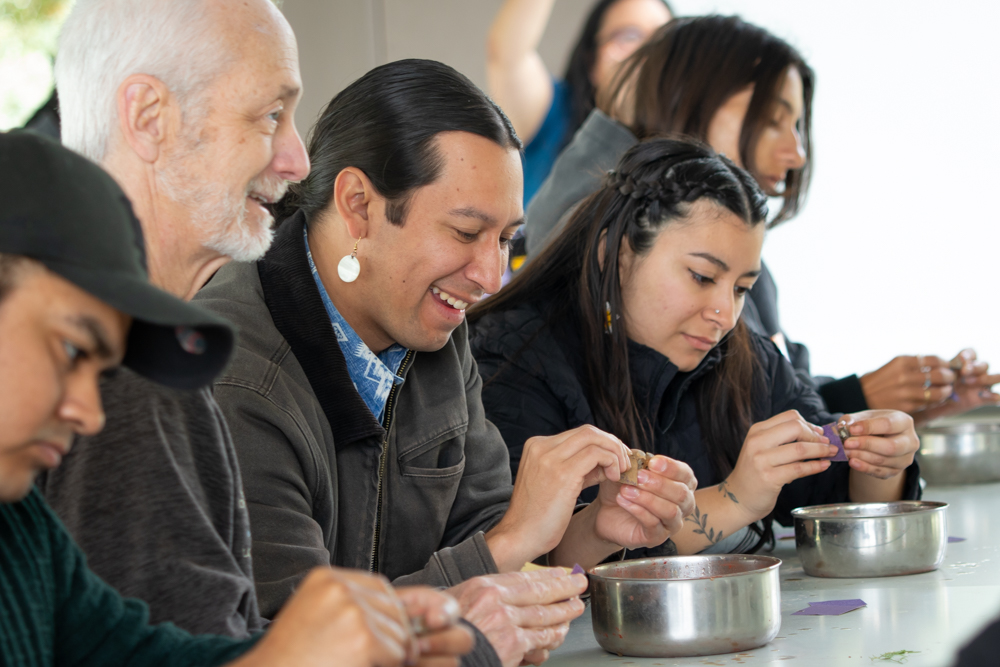
Affinity groups
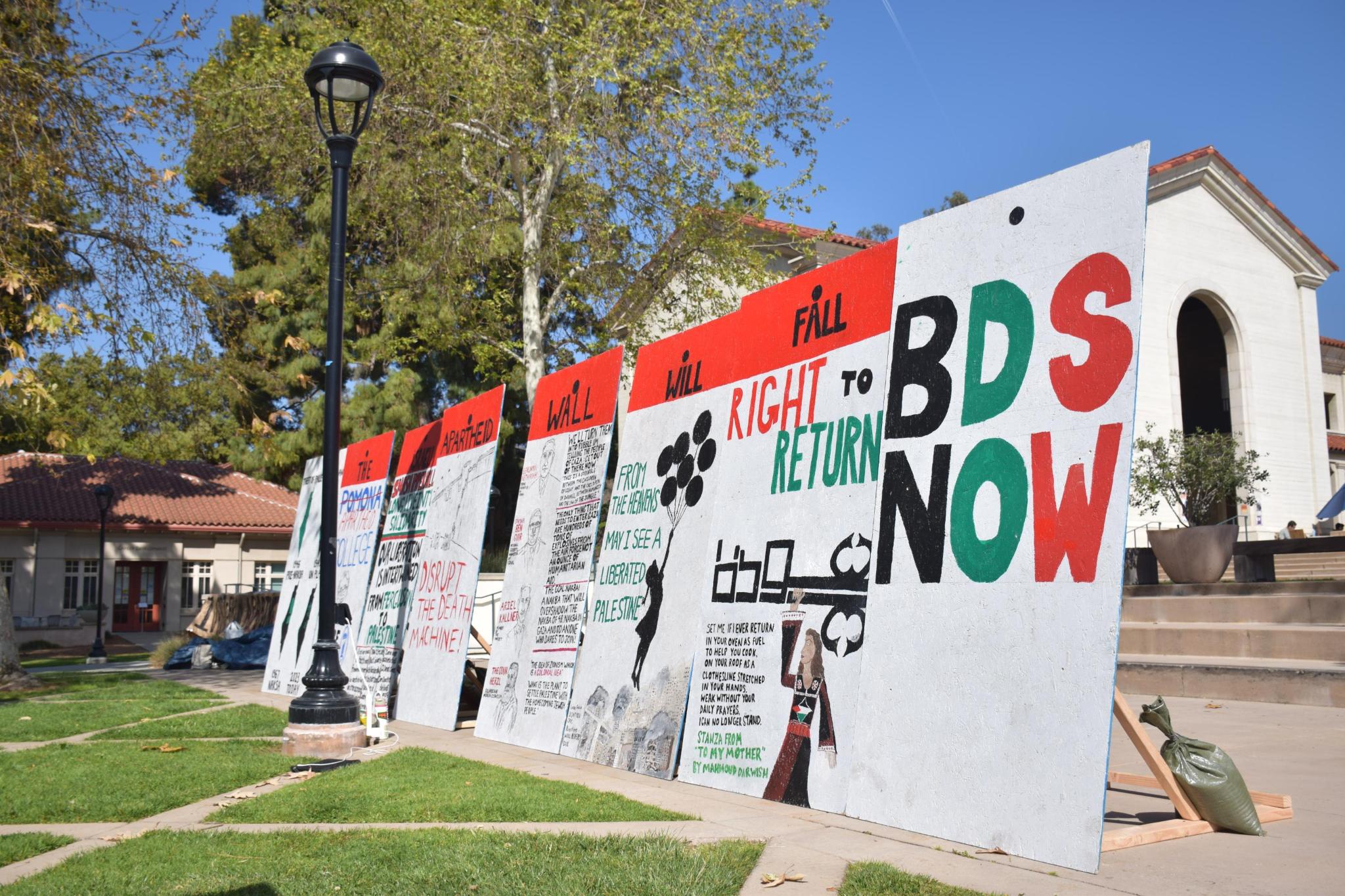
Palestine
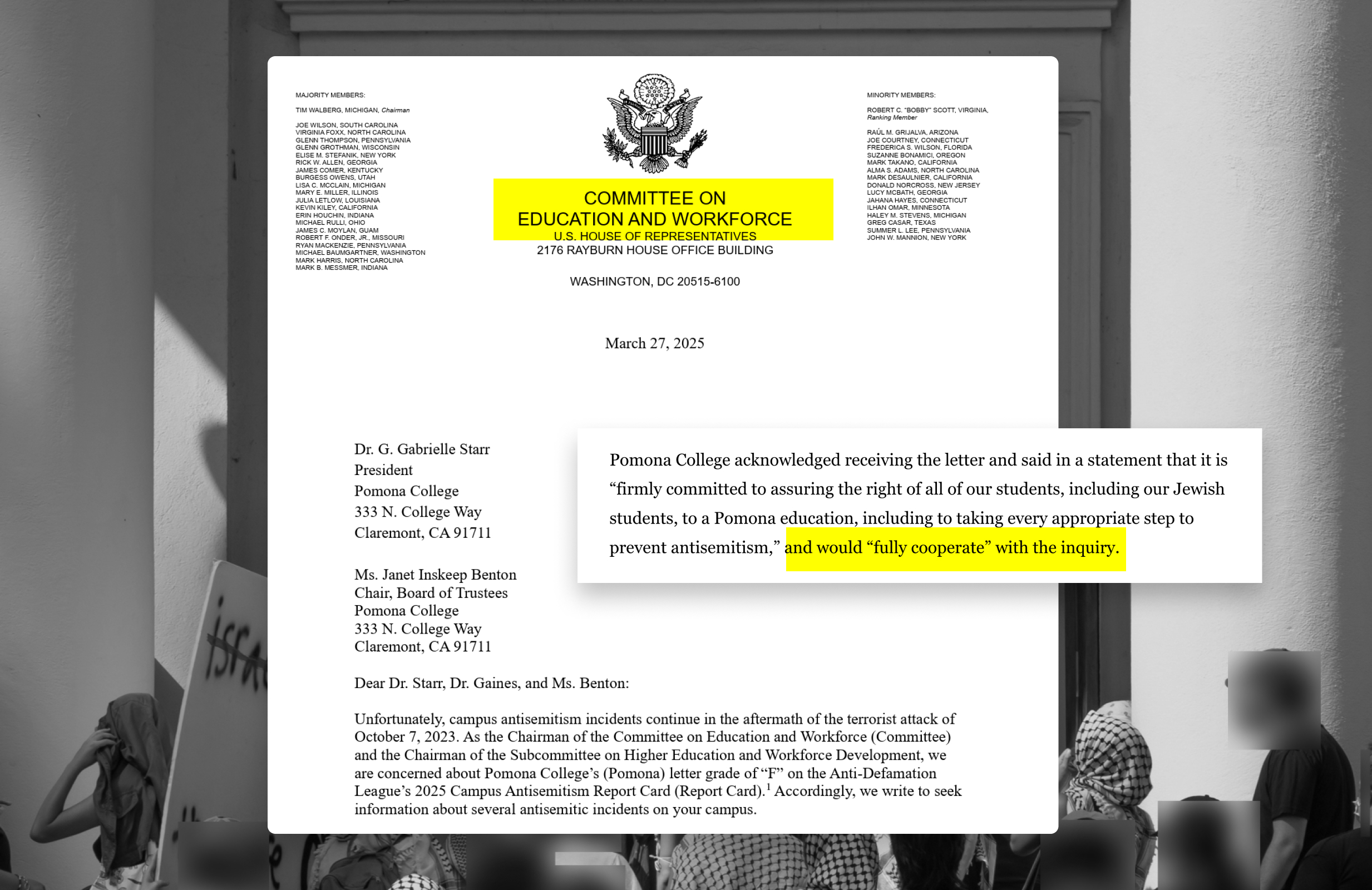
Palestine

Undercurrents reports on labor, Palestine liberation, prison abolition and other community organizing at and around the Claremont Colleges.

Issue 1 / Spring 2023
Setting the Standard
How Pomona workers won a historic $25 minimum wage; a new union in Claremont; Tony Hoang on organizing
Read issue 1